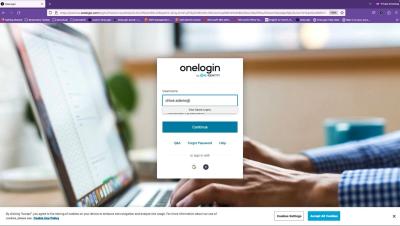Security | Threat Detection | Cyberattacks | DevSecOps | Compliance
November 2023
Reduce the Noise to Secure Your Environment
OneLogin Workforce Identity Demo
Strengthening Cyber Defenses: The Crucial Role of PAM and IGA Solutions
We recently published a blog titled Defending Your Organization Against Session Cookie Replay Attacks. This blog thoroughly examined the menace of session cookie replay attacks, shedding light on the potential risks and consequences they pose to online security. The post delved into the intricacies of session cookie replay attacks, detailing their working mechanisms and the extensive damage they can inflict and emphasizing the imperative need to comprehend and fortify against such threats.
One Identity, AWS Directory Service Strengthen Partnership and Announce Active Roles Integration
Defending Your Organization Against Session Cookie Replay Attacks
In the current cyber threat landscape, where online security is paramount, the threat of session cookie replay attacks looms large. These attacks sidestep the conventional need for credentials and aim to hijack your online sessions, potentially compromising sensitive data and taking over user accounts. This blog post delves into the intricacies of session cookie replay attacks, shedding light on what they are, how they work, and the potential consequences they can unleash.
One Identity Manager version 9.2 has been released GA
Identity Manager governs and secures your organization’s data and users, meets uptime requirements, reduces risk and satisfies compliance by giving users access to data and applications they need – and only what they need – whether on-premises, hybrid or in the cloud. Now, identity security can be driven by business needs, not by IT capabilities. With Identity Manager, you can unify security policies and satisfy governance needs — today and long into the future.
OneLogin Customer Identity Demo
Securing the Keystone: Active Directory Privileged Access Management
The biggest problem with granting too many permissions is that you may be delegating the right to grant permissions. In the realm of cybersecurity, few areas are as critical as managing privileged access. Privileged accounts, often referred to as the "keys to the kingdom," have the power to unlock and control vast portions of an organization's IT infrastructure.











